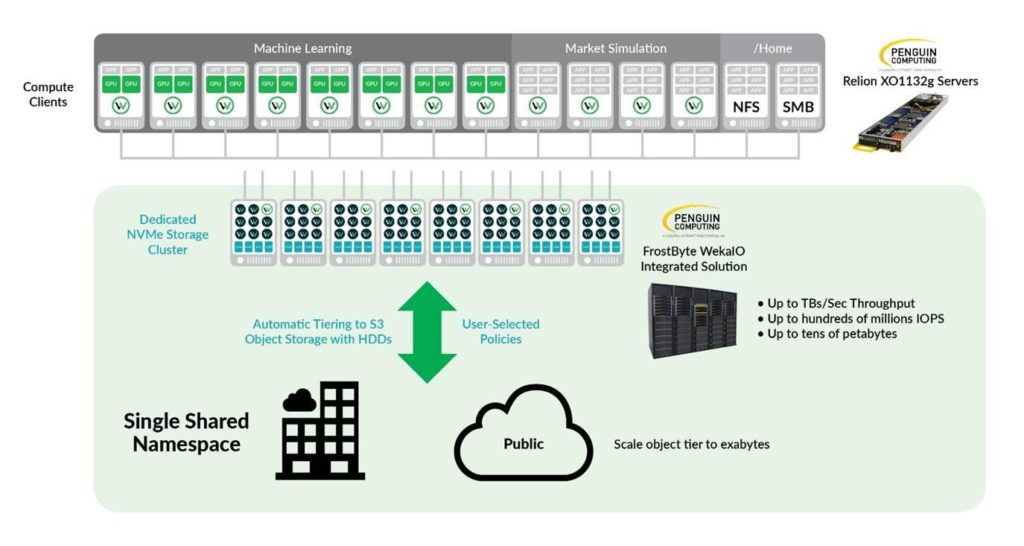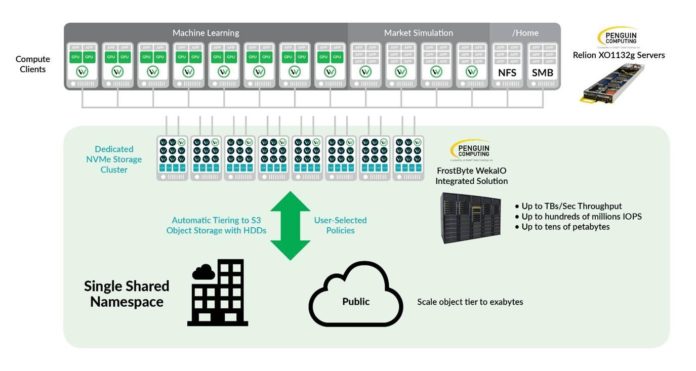WekaIO is making yet another record-breaking performance claim, this time for the STAC-M3 analytics benchmarks.
The STAC-M3 Antuco and Kanaga benchmark suites are regarded as an industry standard for evaluating the performance of systems performing high-speed analytics on time series data. STAC benchmarks are widely used by banks and other financial services organisations.
According to WekaIO, the test system broke eight of 24 STAC-M3 records for mean query-response times and four out of five records for throughput. The lengthy STAC report, which contains detailed explanations of the benchmark specifications and the results, is available from the STAC website.
The test were run using STAC’s baseline benchmark suite Antuco which uses a dataset comprising a year’s worth of simulated stock market data, and the scaling suite Kanaga, which extends this to five years of simulated stock market data.
Testing times
The test system was a new integrated solution from Penguin Computing, an addition to its line of FrostByte software-defined storage systems, in this case combining the WekaIO Matrix v3.2.2 file system with its Relion Xeon-based servers.

As tested, the system ran the Kx kdb+ 3.6 database system across seven Penguin Relion XO1132g servers with dual Intel Xeon Gold 6140 processors, while the FrostByte storage system used eight RXE1112 server nodes with nine NVMe SSDs per server.
The test system was capable of delivering a combined performance density of up to 87.5 GB/sec to the client nodes, 40.5 GB/sec of actual throughput, and 2.5M 4K IOPS.
The Matrix file system is designed for high performance and scalability with low latency, using clusters of standard x86 servers, and WekaIO claims this is the fastest POSIX-compliant file system for AI and technical compute workloads.
The storage start-up has certainly been making a lot of noise about its benchmark wins this year, as reported by Blocks & Files previously here and here.







